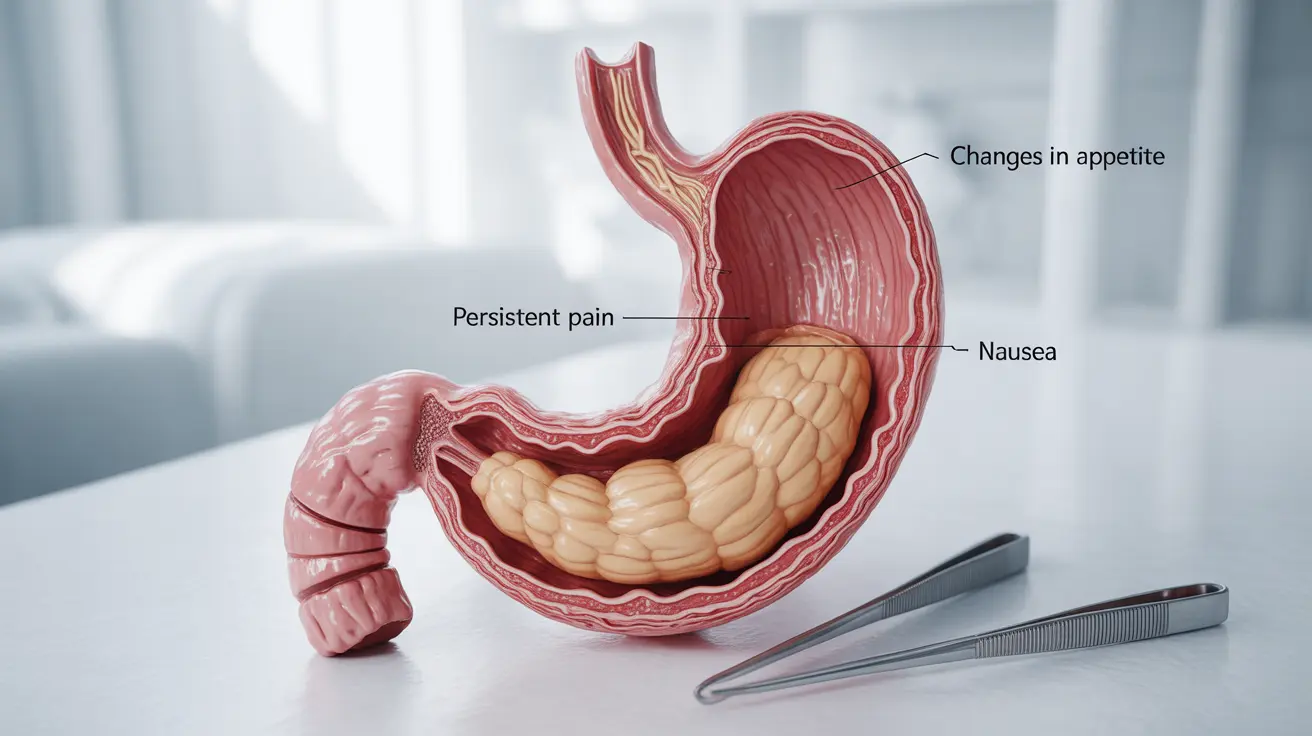Understanding the early warning signs of stomach cancer is crucial for timely detection and treatment. While some initial symptoms may seem similar to common digestive issues, recognizing specific patterns and persistent symptoms can help identify potentially serious conditions that require medical attention.
This comprehensive guide will help you understand the key warning signs of stomach cancer, when to be concerned, and how to distinguish these symptoms from more common digestive problems.
Key Early Warning Signs to Monitor
Stomach cancer often develops gradually, and its early symptoms can be subtle. Here are the primary warning signs to watch for:
Persistent Digestive Discomfort
Early stomach cancer may cause ongoing digestive issues, including:
- Persistent heartburn or indigestion
- Burning sensation in the abdomen
- Mild but constant stomach pain
- Upper abdominal discomfort after eating
Changes in Appetite and Eating Patterns
Notable changes in eating habits may include:
- Feeling full after eating small amounts of food
- Loss of appetite
- Difficulty swallowing
- Unexplained weight loss
Gastrointestinal Changes
Pay attention to changes in your digestive system, such as:
- Persistent nausea or vomiting
- Chronic bloating
- Changes in bowel movements
- Dark or bloody stools
Distinguishing Cancer Symptoms from Common Digestive Issues
While many stomach cancer symptoms overlap with less serious conditions, certain characteristics may indicate a more serious problem:
Duration and Persistence
Common digestive issues typically resolve within a few days or respond to over-the-counter medications. If symptoms persist for three weeks or longer, consult a healthcare provider.
Severity and Progression
Watch for symptoms that gradually worsen over time or don't respond to typical treatments for indigestion or acid reflux. Sudden or severe symptoms should prompt immediate medical attention.
When to Seek Medical Attention
Consider scheduling a medical evaluation if you experience:
- Unexplained weight loss combined with digestive symptoms
- Persistent stomach pain or discomfort lasting more than three weeks
- Difficulty swallowing that gets progressively worse
- Vomiting blood or passing black stools
- Severe fatigue associated with digestive symptoms
Frequently Asked Questions
What are the first warning signs of stomach cancer to watch for?
The first warning signs typically include persistent indigestion, unexplained weight loss, feeling full after eating small amounts, and ongoing stomach discomfort. These symptoms often develop gradually and persist for several weeks.
How can I tell the difference between stomach cancer symptoms and common indigestion or heartburn?
While both can cause similar discomfort, stomach cancer symptoms typically persist for longer periods (3+ weeks), don't respond well to antacids, and may be accompanied by unexplained weight loss or loss of appetite. Common indigestion usually resolves within a few days and responds to over-the-counter treatments.
When should I see a doctor if I experience persistent stomach discomfort or unexplained weight loss?
Schedule a medical evaluation if you experience stomach discomfort lasting more than three weeks, unexplained weight loss, or if symptoms don't improve with standard treatments. Immediate medical attention is necessary if you experience severe pain, vomiting blood, or black stools.
Can early stomach cancer cause nausea, bloating, or feeling full after eating only a little?
Yes, these symptoms can be early indicators of stomach cancer. Early satiety (feeling full quickly), persistent bloating, and ongoing nausea, especially when combined with other symptoms, should be evaluated by a healthcare provider.
What changes in appetite or bowel habits might indicate stomach cancer rather than a less serious digestive problem?
Significant changes that may indicate stomach cancer include progressive loss of appetite, unexplained weight loss, persistent changes in bowel habits (especially black or bloody stools), and difficulty swallowing that worsens over time. These changes tend to be persistent rather than temporary.




